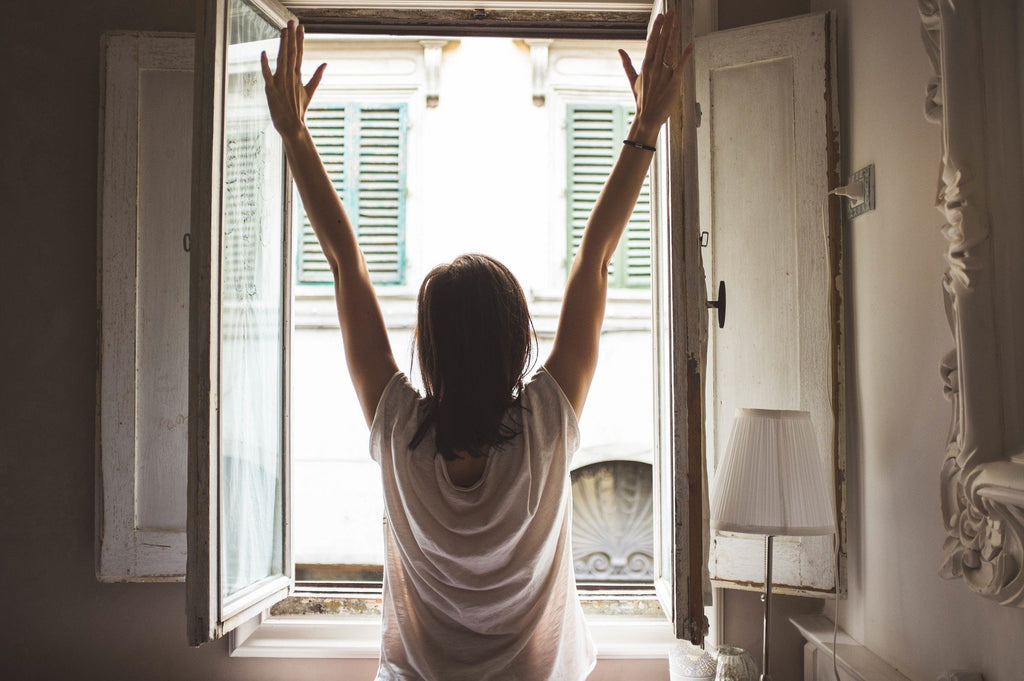What Time Should You Really Wake Up In The Morning?
You've probably heard the best time to wake up is 5 AM, 7 AM, or maybe just whenever you want. Does that work for you? Or does that sound like a horrible proposition?
Are You A Morning Person or Night Owl?
 Some people do much better waking up early and others prefer staying up late.
Some people do much better waking up early and others prefer staying up late.
For most people, it's a matter of a habit, something you got used to doing. Maybe you enjoyed sleeping in, taking your indulgence there, and reset your biological clock to waking up later.
Maybe you had a work schedule that forced you to stay up, and that just became your habit.
Whatever it is, you should pay attention to your habitual sleep patterns. They can tell you much about your health and how you behave during the day.
The One Thing You Should Never Do, No Matter When You Wake Up
There is one thing researchers agree on:
Don't hit the snooze button.
Many people believe hitting the snooze button lets them get in an extra 5 to 10 minutes of sleep, but the research shows that this interruption in your sleep cycle increases fatigue and exhaustion.
In certain studies between people who hit the snooze button and people who get up with their alarm, people who get up with their alarm feel more rested and are more energetic during the day.
It was confirmed when people who routinely hit the snooze button change their habit of getting up with the first alarm they were more rested when they got up with the alarm.
Understanding Natural Circadian Rhythms
 It all has to do with the circadian rhythms. Humans naturally have our hormonal cycles changed with the rising and setting of the sun. At night, the setting sun signals our brain to start producing melatonin, the hormone that helps us sleep. Overnight, in the dark, other hormones, particularly neurotransmitters, take over production, and the brain clears out wastes and moves memories from short-term storage to long-term storage.
It all has to do with the circadian rhythms. Humans naturally have our hormonal cycles changed with the rising and setting of the sun. At night, the setting sun signals our brain to start producing melatonin, the hormone that helps us sleep. Overnight, in the dark, other hormones, particularly neurotransmitters, take over production, and the brain clears out wastes and moves memories from short-term storage to long-term storage.
In the morning, our hormones change again, producing more adrenaline, dopamine, human growth hormone, and in pregnant women, luteinizing hormone.
These are all triggered by the sun and the light and dark cycle.
Why REM Patterns Matter
Researchers found more than what time to wake up was how long people are sleeping and in what stage of REM cycle they were in when they woke up.
We go through REM cycles approximately every 70 to 100 minutes. At the top of the cycle, we have the most vivid dreams. Interrupting that cycle leads to feeling less rested and may lead to repressed dreaming, among other sleep and health disorders.
There Is A Scientifically Optimal Time To Fall Asleep
The research generally agrees the optimal time for people to fall asleep is between 8:00 PM and midnight. It generally occurs between one and three hours after sunset.
The body begins producing melatonin as the sunlight starts to dim in the late afternoon. By the time it gets dark, your body should be in full melatonin production, which begins to relax you and prepare you for sleep.
If you fight against it, your body will switch over and begin producing hormones that keep you awake. That throws off your whole cycle for the night and can significantly impact the REM sleep you get.
Of course, habits also play a factor in producing melatonin in your body, as does your electronics use.
If you habitually stay up later, your body adjusts your melatonin production cycle to match. Unfortunately, it's not optimal, and in the long run, it may cause your body to feel more stress.
Electronic use can significantly impact the production of melatonin and your ability to sleep. The blue light from cell phones, tablets, laptops, and televisions reduces melatonin production and simulates daytime light. As a result, the hormones in your body may act as though it's still daylight out even when it comes to bedtime.
That's why doctors recommend avoiding all electronic use between one and two hours before you go to sleep. That allows your body to fall into a healthy sleep cycle naturally.
If you want to try and get up earlier, begin adjusting your cycle slowly. Start with avoiding the snooze button. Then, start shifting your wake-up time 5 to 10 minutes earlier every week. As you get used to the change, you can move to the next step.
You don't need to wake up at 5 AM if you're not a morning person. In the end, that could do you more harm than good. However, sleeping until 9:00, 10:00, even noon is just as detrimental. So enjoy the early hours, they tend to be quiet and productive.